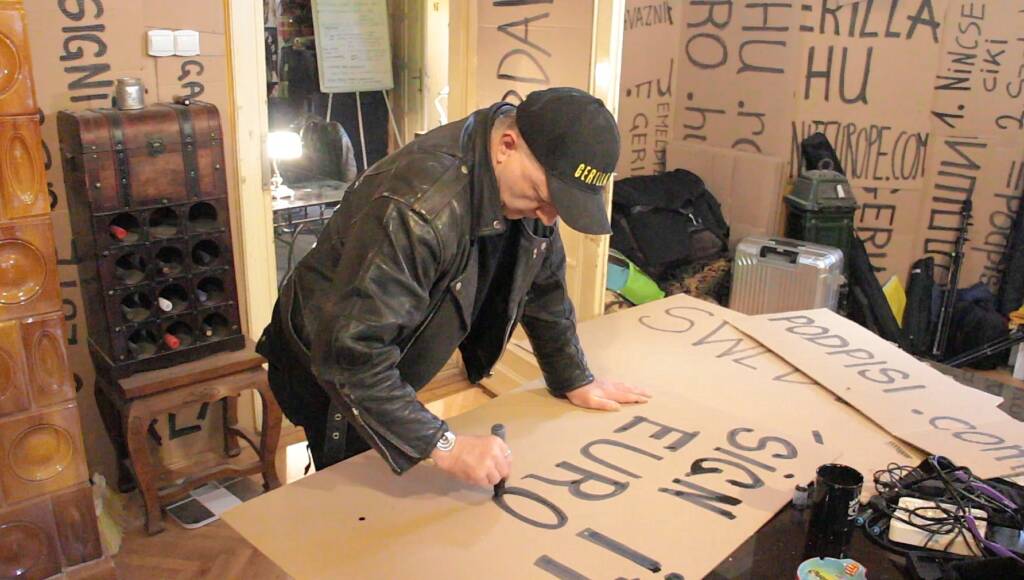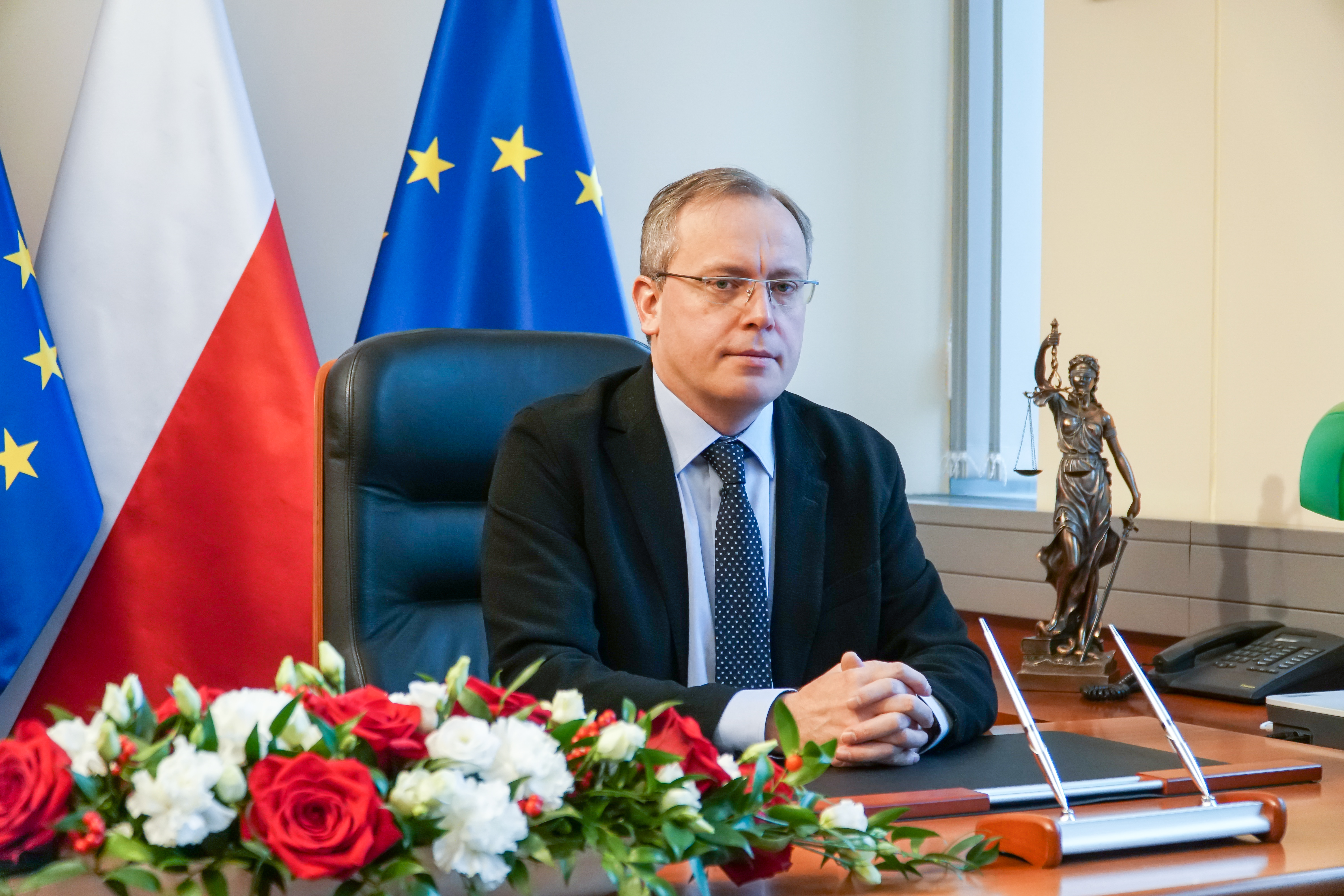Hungary – Interview with László Pesty, film-maker and head of the campaign “Sign It Europe” aimed at defending the rights of historical and local European minorities: “Such progress requires conflict. We are up for the challenge.”
The European Citizens’ Initiative (ECI) “Cohesion policy for the equality of the regions and sustainability of the regional cultures” is coming to the end of phase 2, almost a decade after its launch.
As explained to us by the Hungarian political scientist Attila Dabis, who is the vice-president of the initiative’s steering committee, the legal battle began in 2011. But it was only in 2019 that the collection of signatures could begin (a minimum of one million signatures collected in one year is required, as well as the crossing of a minimum threshold in 7 Member States).
The Covid crisis has led to several extensions of the deadline for collecting the signatures, and stops on 7 February 2021 at 11.59 pm. In the end, in addition to the one million signatures largely obtained (mostly in Hungary), 9 countries exceeded the minimum threshold (Spain, Sweden, Latvia, Lithuania, Slovakia, Hungary, Slovenia, Croatia, Romania).
Film-maker László Pesty, responsible for the irdala.hu (in Hungarian) and signiteurope.com (in English and other languages) campaigns to support the collection of signatures, answered for the Visegrád Post some questions about this initiative to obtain more rights at EU level in order to preserve the culture of Europe’s historical minorities – such as, for example, the Szeklers, Bretons, Corsicans, Catalans or Basques.

Visegrád Post: The past weekend, you just succeeded to reach the threshold in the seventh country. Since you already had over one million signatures, your ECI is now valid. How did it go, what country provided you with the most signatures? How do you explain the success in those seven countries?
László Pesty : The defence of national minorities are a movement, that is very much alive all across Europe. It is an ongoing laborious effort. Our success doesn’t lie in propagating a reason for why the initiative is important. The challenge was to establish various channels for communication, online and offline. Not only our personal challenge, this phenomenon is the exact dilemma of national minorities. There is a wide-ranging social crisis. The EU decision makers have the legislative power to provide a solution. The missing link is communication. Our main achievement was to amplify the voices of the unheard. That is the primarily object of any European Citizens Initiative.
We had a straightforward activity in the Transylvanian region of Romania. Our team includes many Transylvanians. Hungary of course, is naturally in close relation with the region. It was the most innate to communicate their distress as we already are strongly connected. National minorities, have serious challenges in every corner of the EU, but there are bureaucratic barriers to their articulation. Spain was a significant contributor regarding the number of signatures. Catalans and Basques have already fought for abolishing the barriers and for establishing their own means of communication. The required effort on our side was proportionate to the vehicles of social discourse available for the cause and to the flexibility of actors in charge.
Visegrád Post: The deadline had been postponed twice. How did it go to organize the ECI during this covidian 2020 year? What difficulties did you have to face in the past twelve months?
László Pesty : Often, people think that because of the pandemic it was a challenge to collect the signatures. A completely misguided assumption. Paper based documentation wasn’t a critical component of the campaign. We concentrated on online presence and on collecting the signatures digitally, accommodating call to action funnels both in offline and online campaign elements.
What many do not recognise, even asides the campaign, is the dramatic state of mind society has globally sunk into. It is absurd to talk of anything in the shadow of COVID. The bitter news surrounding it and the constant urgency demanded, representatives were overwhelmed and news platforms busy. As I have mentioned previously, our mission was to establish the means of communication. COVID was a major challenge, not regarding the collection process but in getting the word out.
Visegrád Post: Don’t you fear that the EU will reject this ECI, just as it rejected the Minority SafePack? We just recently witnessed that the EU institutions rejected the “Minority SafePack” without any hesitation, whilst this initiative aimed to protect and promote European native minorities.
László Pesty : Again, let’s return to the same concern, the root cause. The EU Parliament supported MSP. The EU Commission however, rejected it. We are experiencing a serious disconnect between the public and the bureaucrats in charge. The EU Commission relies on a very technocratic approach, that is indeed meticulously executed. Meanwhile, it is out of touch as the tragedy of Brexit proves. It is our job, to prepare for the bureaucratic challenges, more importantly to shed light on the paradoxical mechanisms we are forced to rely upon. If we achieve success, it is not only the Sign It Europe initiative and the 50 million Europeans directly affected as minorities whom will benefit. Europe in its whole can regain its trust in the democratic institutions. Academic ideology may look good on paper, on drafts lying around in various offices of Brussels. But it is a different matter to live by these values and to bring them to life. Such progress requires conflict and honest, sometimes harsh communication. We are up for the challenge.
Visegrád Post: Do you think this rejection was politically motivated? In Hungary, the Minority SafePack as well as the ECI you support, the Cohesion policy for the equality of the regions and sustainability of the regional cultures, enjoyed a broad support. In Hungary, the topic of national minorities is well-known for historical reasons, and it is not a matter of politics, nor a right or left issue.
László Pesty : I do believe it was partly politically motivated, but for all the wrong reasons. The fundamental problem is that the institution of Citizens Initiative is not respected nor understood by the EU Commission. The Commission doesn’t like surprises and successful initiatives are rare. There is no strong precedence to rely upon and no established processes to prepare decision-making. It is very clear that the Hungarian government and Brussels are in a state of diplomatic unease. Besides, do not forget that, not with ill intentions but for popular stability, it is in the best interest of some majority governments, to have the national minorities remain in a state of political idleness. Any slight gesture by majority representatives, without much conspiracy, was enough to tip the scales. Such gesture might have built on perceptions of Hungary’s foreign policies, not based on ethical reasoning, simply by the logic of naïve persuasion for domestic interest.
Visegrád Post: Even though the ECI already succeeded to reach the requirements, people can still sign it, strengthening further the initiative. What would you tell our French, English and German speaking readers to get them to sign it?
László Pesty : Thank you for this question. I would like to take the opportunity for further repetition of my main concern. Yes, the EU has given a framework for the Citizens Initiative and does require “only” seven countries. Yes, for a bureaucrat it would be enough to mark the project finished and patiently wait for assessment. This might just be another bulky report in the eyes of the administration. Nevertheless, for me and for everyone involved, it means much more. It is something entirely different from that. Every signature represents one civilian. In a democracy, to vote is not to think of a mathematical average or to trust that someone else will do it for us. To vote is a kind of modern ritual of exercising free will. If we didn’t have a belief in this ritual, we wouldn’t have Europe anymore. I would like to ask everyone who supports this initiative, to sign. Do not sign for the numbers. Sign for supporting the initiative, for supporting a grass roots Europe, where everyone has a say.




